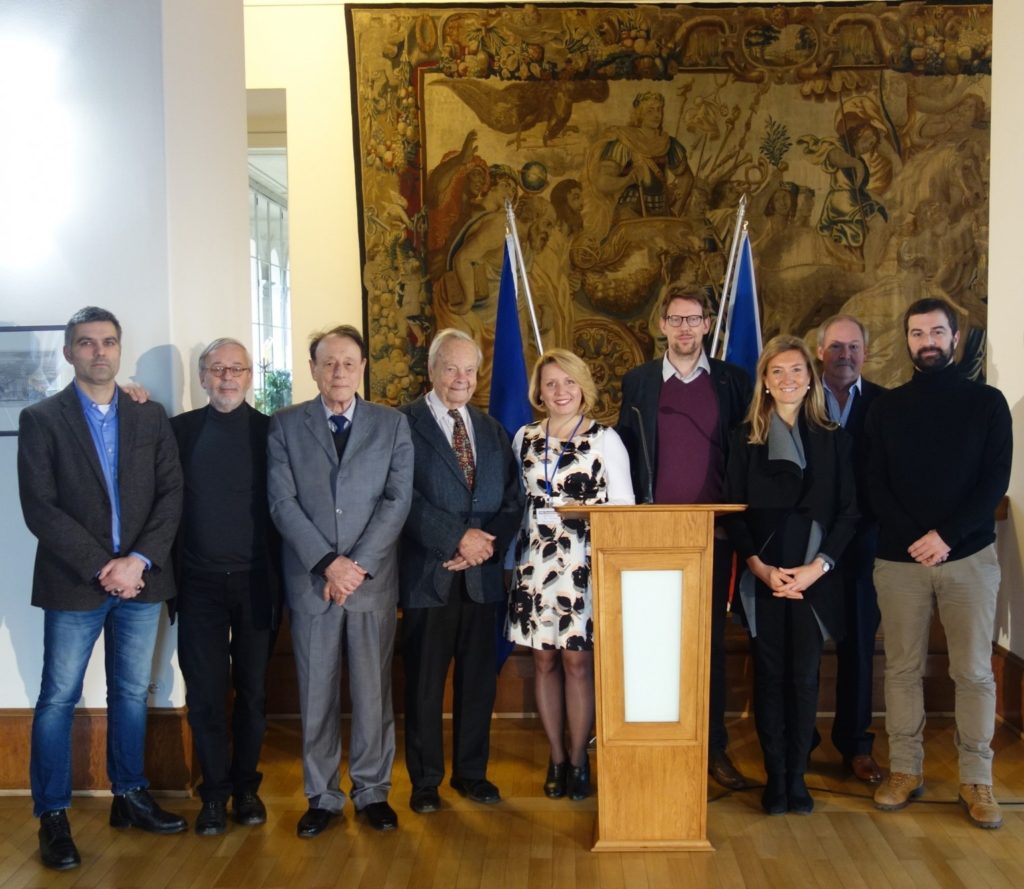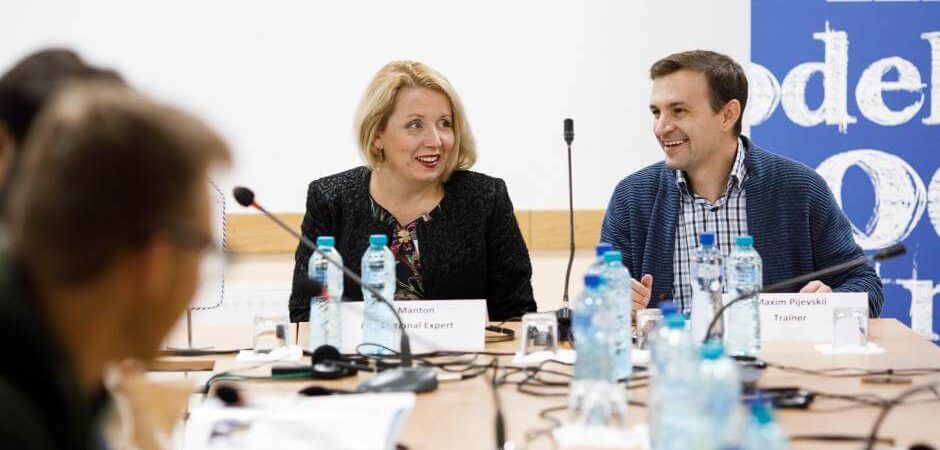Model OSCE Moldova, 2019
by Ida Manton, Researcher, Trainer in International Negotiation, Visiting Professor at the University of Economics in Prague, and former Mentor of the CEE Her Mentorship Programme
“Between 1992 and 2018, women constituted 13 percent of negotiators, 3 percent of mediators and only 4 percent of signatories in major peace processes.”
“As a woman, I have often been the only one on a given team” writes Ms. Manton. From the offset, this poses a dilemma: either the role of negotiators is so unimportant that neither resources nor personnel should be dedicated to it, or it is so crucial to ease the tensions between the conflicting sides and be a mediator in difficult dialogues that it requires the brainpower of more than just half of our society. Without a doubt, it is the latter.
In her article “On Being a Woman: Why Gender Is Still a Topic for Negotiation Analysts and Trainers”, Ms. Manton makes a strong and convincing case for female empowerment and elaborates on where the international community currently stands on this long path towards gender equality in conflict mediation.
“I hope that my investment in the capacities of other women’s negotiation skills will increase their direct participation in peace negotiations, which according to UN Women increases the sustainability and quality of peace.”
Women are too often side-lined on the basis of unequal power distribution which, therefore, not only affects the underlying issue of female underrepresentation in conflict mediation but also directly affects the outcomes of such peace negotiations.
“In 2018 UN Women reported that women comprised 35 percent of heads and 48 percent of deputy heads of UN peacekeeping and special political missions.”
Since Ms. Manton acknowledges that “the pool of experienced female peace and diplomatic negotiators is very limited”, this makes the CEE Her Database that more relevant and needed.
“At a time when the traditional, hierarchical decision-making models have been replaced by negotiation (a horizontal process that brings a variety of actors to the table), it is a great loss to exclude women and their different sets of skills, knowing that we can learn so much about the “hidden opportunities” that come to light when power realities are challenged.”
While there are tangible benefits to including women in the decision-making and solutions’ implementation, this cannot and should not be left solely to women. Female experts are struggling to access opportunities with an equal expertise, experience and knowledge as their male counterparts. Thus, while many workplaces are very gendered in this regard, the effort to promote female representation and women’s qualities ought not to be gendered as well.

“I believe that by including more women in the academic process we will have a more constructive discussion on inclusivity and the role women play in the conflict cycle.” The CEE Her Database is one of the many tools sought to achieve that.
“Gender equality can not happen without both men and women making the effort. Only then the gender will no longer matter and we will look for the qualities, energies and creativity we all bring to the table” Ms. Manton concludes.
The article was originally published on PIN•Negotiation website in 2020, published in a PIN*Points Magazine No. 48

